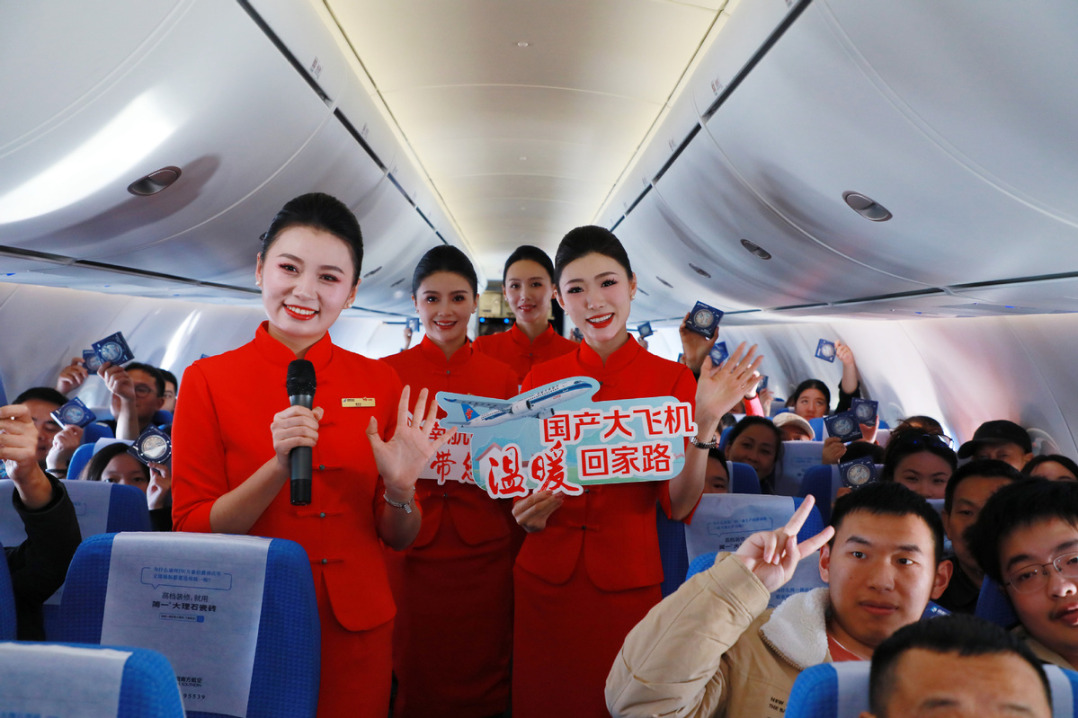Foreign journalists reporting truth about China a pleasant sight

"The world is a book, and those who do not travel read only one page," Saint Augustine is supposed to have said.
Just as I was thinking about sparking up a conversation with a stylishly dressed journalist in front of me, he seemed to hear my thoughts and turned his head with a smile to answer me.
"You can talk to me," he said.
Before we could even exchange pleasantries, he began to regale me with a story about what he was doing here in Beijing.
He talked about the excitement he felt attending his first news conference in China, having only arrived two weeks earlier from Bosnia and Herzegovina.
He said he was 24 years old, but to me he looked more like an oldish boy than a young man. After graduating from university in his country, he had gone on to work for two media outlets there before coming to China with a particular topic close to his heart: the sometimes complicated relationship between the Chinese mainland and Taiwan.
As we chatted, he told me of his having discovered the joy of Taiwan cuisine. To do so, he didn't need to visit the island — he was able to enjoy the food in Beijing. However, this gourmand's appetite had obviously not been sated, and he asked me to add him on social media app WeChat and provide him with some recommendations for good dining.
So my new friend from Bosnia and Herzegovina had not only gained a taste for Chinese food, he was also obviously familiar with WeChat, an app used by numerous people worldwide that he said he had begun using in his country to communicate with family members many years ago.
This is one of the pleasures a Chinese journalist covering events such as the annual two sessions in Beijing can enjoy: meeting many counterparts, both young and old — but mostly young — from every corner of the globe. They come in all sizes and colors, of course, each with their own charm and with varying degrees of foreign-language competency.
However, there is at least one thing they all have in common: their insatiable thirst for knowledge, to know what's going on in the world around them.
Other young journalists I have had the pleasure of rubbing shoulders with over the past few days include David, 25, from Colombia, and Mahdi, 24, from Lebanon, who both came to China to cover the two sessions.
David brimmed with enthusiasm as he spoke of how keen he was to let Colombians know about China's culture and society, a very commendable course when you consider that they probably know as much about my country as I know about theirs, and indeed about Lebanon and Bosnia and Herzegovina.
David said he planned to visit at least two popular attractions in Beijing — the Temple of Heaven and the Lama Temple — and to go skiing in Hebei province, capturing every moment on video to present on social media.
Mahdi, on the other hand, was more preoccupied. His work had more to do with economics, namely China's growth and the role that the Belt and Road Initiative is playing in that.
Many years ago, with the United States holding almost unchallenged economic sway globally, someone said that when America sneezes, the world catches a cold. Mahdi seemed to be aware that version 2.0 of this is that when China's economy blossoms, so does the world's. So he was eager to talk to Chinese officials and experts, hoping to gain insights into how China's plans would affect Lebanon.
Hearing these young journalists' stories, one could not help but be impressed by their acute sense of curiosity, their desire to educate their audiences and their willingness to ignore the incessant din from the great Western media machine that almost invariably portrays China in a bad light. How good it was to know that these fresh, young minds were willing to literally go the extra mile to ensure that their audiences back home hear the truth.
These young journalists see the world not through the jaundiced eyes of seasoned, cynical news veterans, but with an eagerness to learn and pass on information. In doing so, they know that in journalism, the goal is not obtaining fame or glittering prizes, but is about using their voices to make a difference in the world.
Every year when the two sessions are held, the timing seems perfect. As representatives from around the country gather in the Great Hall of the People to plant ideas and let them germinate, leaves are beginning to appear on trees outside as spring begins to find her feet.
If these budding young journalists live up to their present promise, there is little doubt that when they return to their homelands, they will flourish, and for that we will all be able to rejoice.
Contact the writer at pengyixuan@chinadaily.com.cn

- Beijing holds vibrant New Year celebrations at Shougang Park
- Trade between Chinese mainland, Taiwan records year-on-year increase of 9.4%
- Taiwan residents make over 4m trips to mainland in 2024, up 54.3%
- Xi Jinping's cultural footprints in 2024
- Southeast Asian mayors experience Chinese New Year traditions in Nanning
- 90 years on, Long March's legacy inspires China's progress in the new era





































